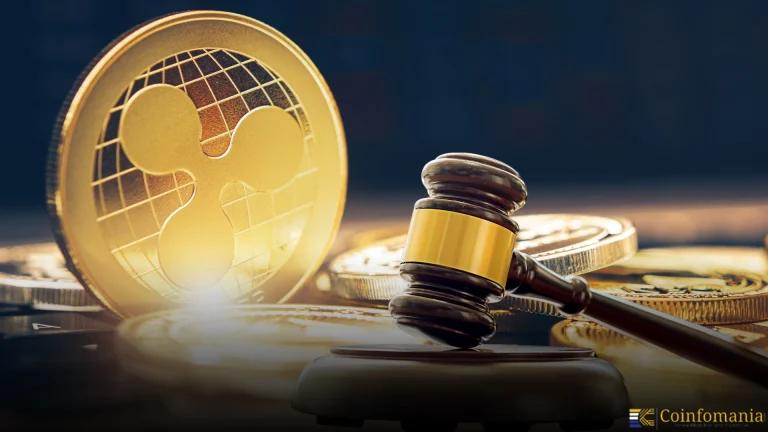Cryptocurrency Regulations in Nigeria
Nigeria maintains a position between friendly and restrictive policies regarding cryptocurrency. The government has taken major banking restrictions and regulatory controls without officially banning cryptocurrencies. The crypto environment in Nigeria is shifting toward a regulated system currently. Investors, together with crypto businesses and users, need to understand the current cryptocurrency regulations in Nigeria. The country’s […]

Nigeria maintains a position between friendly and restrictive policies regarding cryptocurrency. The government has taken major banking restrictions and regulatory controls without officially banning cryptocurrencies. The crypto environment in Nigeria is shifting toward a regulated system currently.
Investors, together with crypto businesses and users, need to understand the current cryptocurrency regulations in Nigeria. The country’s position as a top crypto-adopting nation among youth groups creates legal protection and market expansion possibilities through compliance with evolving laws.
The regulatory control of cryptocurrency in Nigeria exists under two primary institutions:
- The Central Bank of Nigeria (CBN) maintains authority over financial stability and banking practices in the nation.
- The Securities and Exchange Commission (SEC) maintains control over digital assets and investment-related operations.
Historical Context
Crypto regulation in Nigeria started with warning signals from the authorities. During January 2017, the CBN published warnings about crypto risks that directed banks to stay away from dealing with cryptocurrencies. The Central Bank of Nigeria implemented a formal ban on banks for any crypto transaction processing during February 2021 because they wanted to stop money laundering and terrorism financing activities.
The CBN made a major policy change in December 2023 by removing the crypto business restrictions and allowing banks to establish accounts under specific regulatory terms. The SEC implemented detailed digital asset regulations in May 2022 to monitor the sector without restricting innovation.
The path from initial doubt to controlled oversight demonstrates Nigeria’s approach to protecting crypto risks while supporting its economic growth potential.
Regulatory Framework
Key Regulatory Authorities
- The Central Bank of Nigeria updates financial stability regulations to establish banking procedures when working with crypto service providers.
- The SEC functions as the regulatory body that manages the issuance of digital assets while granting licenses to exchanges and wallet providers who invest in digital assets.
Licensing and Registration Requirements
All crypto exchanges together with their related businesses need to fulfill the following requirements:
- Register with the SEC.
- The company must establish operational facilities within the borders of Nigeria.
- The company must submit comprehensive documents which include whitepapers for token offerings.
AML/KYC Requirements
The AML/CFT obligations in Nigeria are strictly enforced by both CBN and SEC.
- The KYC process requires banks, together with crypto entities, to authenticate their customer identities.
- Suspicious transactions must be reported.
- The guidelines follow the global standards set by the FATF.
Taxation
Starting from 2025 all crypto gains will be taxed at 10% as Capital Gains Tax (CGT). The proposed tax amendments extend crypto taxation to more digital transactions as part of the government’s plan to increase national revenue.
ICOs and Other Digital Assets
The SEC regulates ICOs and STOs as part of its digital asset regulatory framework. All issuers need to register their offerings with the SEC while they must also reveal beneficial owners and follow applicable securities laws.
Nigeria’s Crypto Policies
Crypto Usage
The use of cryptocurrencies remains legal despite their status as non-tender currency at the individual level. The previous banking restrictions have not hindered the growth of peer-to-peer (P2P) trading, which gained momentum due to inflation and restricted foreign currency availability.
Crypto Mining
General commercial laws govern mining activities in Nigeria because the country lacks specific regulations for this sector. The regulatory framework needs clarification regarding energy utilization and environmental protection matters.
Government-Backed Initiatives
Nigeria became the first African country to introduce eNaira as its Central Bank Digital Currency (CBDC) in October 2021. The government maintains its support for eNaira adoption because it aims to boost remittances and financial inclusion.
Penalties for Non-Compliance
Failure to follow crypto laws can lead to three types of penalties:
- Regulatory sanctions.
- Fines or asset seizures.
- Financial institutions have the authority to close bank accounts at the direction of the Central Bank of Nigeria.
Country’s Approach to Crypto Innovation
The absence of a regulatory sandbox in Nigeria does not hinder the SEC and CBN’s ongoing development of frameworks that indicate support for fintech innovation. The Nigeria Inter-Bank Settlement System (NIBSS) collaborated with the Zone blockchain network during 2024 to implement blockchain solutions within financial systems.
Businesses are increasingly adopting crypto for their operations, particularly during international transactions and fintech service provision. The forecast for 2025 shows Nigeria will reach more than 25 million crypto users because of its active startup environment and deep-rooted adoption across the country.
Notable Challenges and Issues
Inconsistencies in Regulation
The back-and-forth regulatory actions taken by Nigeria between banning and pro-regulation practices have created confusion among business stakeholders. Market confidence together with long-term investment has suffered due to these inconsistent regulatory approaches.
Challenges to Enforcement
The enforcement of crypto regulations remains challenging because of its decentralized nature. The combination of peer-to-peer platforms with anonymous features hinders transaction monitoring and effective control implementation.
Public Perception
The Nigerian youth population, alongside other public members, shows positive attitudes towards crypto due to economic challenges and monetary instability. People continue to hold worries about fraudulent activities and price fluctuations as well as the lack of clear regulations.
Key Regulatory Trends and Future Outlook
Recent Developments
- The Central Bank of Nigeria removed its prohibition against crypto banking operations during December 2023.
- The SEC declared in February 2025 that it would impose taxation on various crypto transactions.
Future Outlook
The regulatory environment will become stricter by focusing on three main areas:
- Broader taxation.
- Formal licensing regimes.
- Enhanced KYC/AML enforcement.
Nigeria has the potential to become an African regulatory leader for crypto adoption if it successfully implements its policies.
Global Implications
The crypto policies established by Nigeria possess the potential to direct cross-border trade throughout Africa through the African Continental Free Trade Area (AfCFTA). The market size of this nation possesses the ability to influence the development of unified regional regulations.
Conclusion
The cryptocurrency regulatory system in Nigeria has moved past immediate restrictions to establish structured regulatory frameworks. The transition to formal oversight presents both ongoing obstacles and new possibilities for investors and innovators and users of cryptocurrencies.
It is essential for everyone to stay updated about Nigerian crypto policies because they are changing rapidly. The knowledge of current regulations becomes essential for anyone who wants to operate in the promising yet complex cryptocurrency market, whether they are startup founders or investors or enthusiasts.
FAQ: Cryptocurrency Regulations in Nigeria
1. Is cryptocurrency legal in Nigeria?
The laws of Nigeria allow citizens to possess cryptocurrency and participate in its exchange. The Nigerian government does not classify cryptocurrency as legal money.
2. Can banks deal with crypto?
Banks gained the ability to establish crypto business accounts through accounts since December 2023 yet they remain restricted from trading or maintaining crypto assets directly.
3. Is crypto taxed in Nigeria?
A 10% Capital Gains Tax currently applies to crypto profits from sales yet the government continues to work on developing expanded tax regulations.
4. Are ICOs legal in Nigeria?
The SEC requires ICOs to register and they need to follow both disclosure requirements and compliance regulations.
5. Is eNaira a cryptocurrency?
The CBN operates eNaira as a Central Bank Digital Currency (CBDC) under its full authority.
Follow us on Google News
Get the latest crypto insights and updates.
Related Posts

Ripple Highlights Custody as Key to $18.9T Tokenized Assets by 2033
Shweta Chakrawarty
Author

Hong Kong SFC Issues New Custody Rules for Crypto Platforms
Shweta Chakrawarty
Author

South Korea and Vietnam eye $150B trade despite Trump tariff
Shweta Chakrawarty
Author